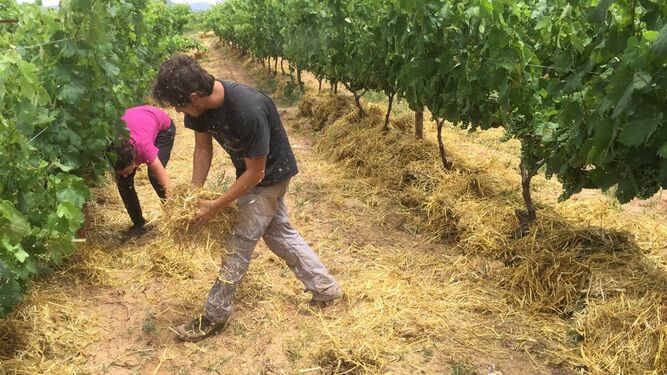Organic mulches as weed suppressants
A three-year study reveals the impact of organic mulches on weed control and soil health
2023-11-30

In the quest for more sustainable and environmentally friendly agricultural practices, the wine industry stands at the forefront of innovation. One of the latest advancements in this area is the use of organic mulches for weed control in vineyards. This method not only offers an eco-friendly alternative to traditional practices but also enhances soil quality and promotes responsible agricultural practices.
Organic mulches, such as straw and shredded pruning remains, have proven to be highly effective in combating weed growth among grapevines. These natural materials contribute significantly to improving soil quality by reducing soil density and compaction, enhancing soil fertility, porosity, and stability, and increasing soil water retention. The latter is especially critical as it reduces evaporation and improves the soil's capacity to store and infiltrate water, thereby contributing to more efficient water resource management in vineyards.
A comprehensive three-year study conducted between 2019 and 2022 by the "VITIS GESTIÓN" group aimed to evaluate the effectiveness of three different types of organic mulches in comparison to two traditional weed control methods. This study also shed light on how the presence of different plant species varied depending on the type of mulch used.
The organic mulches analyzed in this study included straw, shredded pruning remains, and post-crop substrate mixture of straw, poultry manure and urea. These treatments were compared with two traditional approaches: the use of herbicides and inter-row tillage.
The findings revealed that of the three organic mulches examined, straw and shredded pruning remains are viable options for controlling excessive weed growth in vine rows, reducing it to less than 30% of the soil surface. Additionally, the biodiversity analysis indicated that organic mulches affect not only the quantity of species present but also their composition. These mulches encourage a greater diversity of species, including some beneficial to the ecosystem, whereas traditional methods tend to promote the proliferation of species that directly compete with grapevines.
This study, detailed in the reference article (https://doi.org/10.1016/j.eja.2023.126997), marks a significant step forward in sustainable viticulture. It highlights the importance of adopting eco-friendly practices that not only maintain the health and productivity of vineyards but also contribute positively to the broader ecosystem. The use of organic mulches offers a promising path for vineyard managers seeking to balance agricultural productivity with environmental stewardship, paving the way for a more sustainable and responsible future in wine production.
Founded in 2007, Vinetur® is a registered trademark of VGSC S.L. with a long history in the wine industry.
VGSC, S.L. with VAT number B70255591 is a spanish company legally registered in the Commercial Register of the city of Santiago de Compostela, with registration number: Bulletin 181, Reference 356049 in Volume 13, Page 107, Section 6, Sheet 45028, Entry 2.
Email: [email protected]
Headquarters and offices located in Vilagarcia de Arousa, Spain.